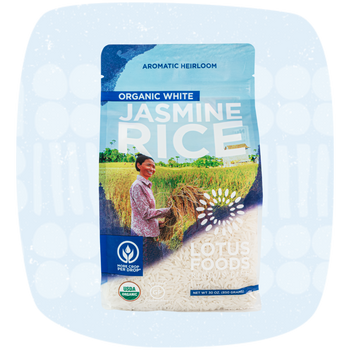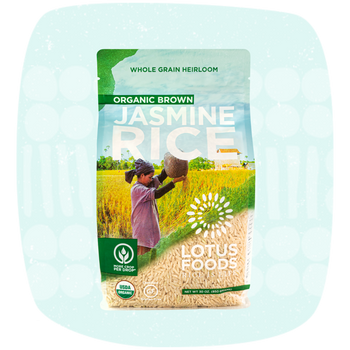FARMER STORIES: Fuangfah Punjit & Amporn Jaithong, Thailand
May 25, 2021
The Songkran Festival in Thailand, is a 5-day national New Year celebration, complete with visits to local temples, parades, family gatherings and everyone splashing water on each other to represent purification and for fun. Fuangfah Punjit and her husband, Amporn Jaithong, who are rice farmers in Northeast Thailand (Isan) and supply certified organic and fair-trade jasmine rice to Lotus Foods, are among those that celebrate during the festival.
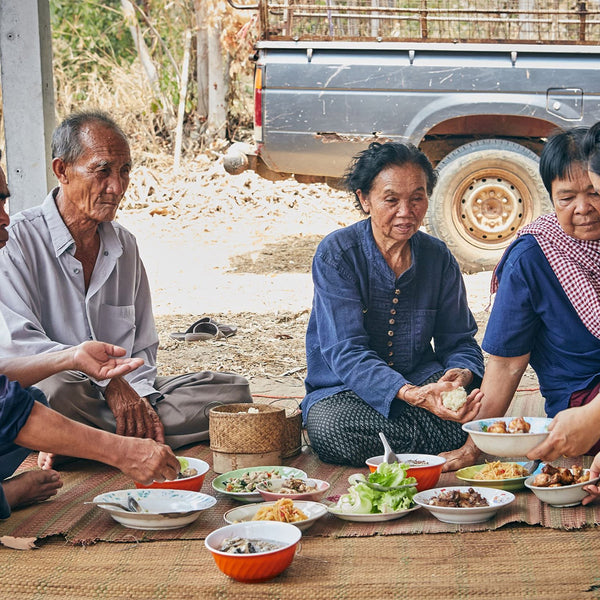
Amporn Jaithong (Left) and Fuangfah Punjit (Center) enjoy a typical Isan lunch with family.
Fuangfah and Amporn farm 6 hectares, on which they grow rice, fruits, vegetables, herbs and spices. Fuangfah does the cooking, housework and works in the fields, participating in all aspects of growing rice from planting the rice seeds to applying organic fertilizer. Apart from the rice-growing period, she also grows many fruits and vegetables.
Fuangfah learned to cook from her mom and her daughters are learning from her. The combination of four flavors - salty, sweet, sour and bitterness, and also spicy - are a must in every meal.
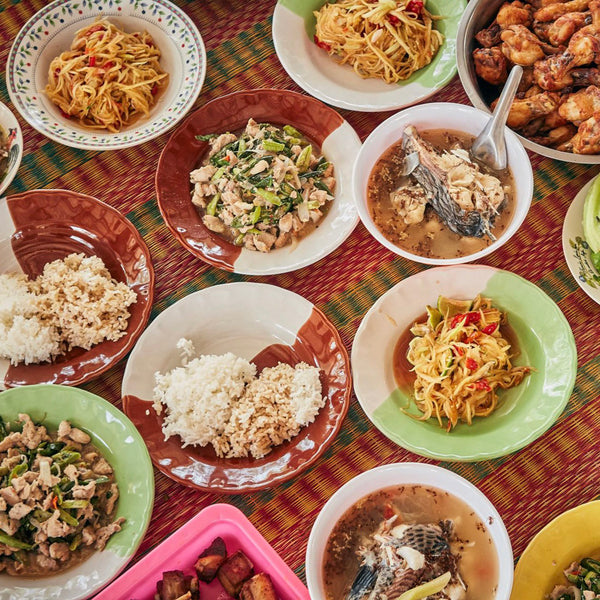
They have a son, a daughter and two adopted younger daughters from a sister-in-law. The eldest two children completed Vocational High School and found jobs away from the farm. However, the son, who studied electronics and was working in a cellphone repair shop, has returned to help his parents and may make that his livelihood.
We asked Fuangfah and Amporn their thoughts about organic farming and fair-trade. “We’ve seen that growing organic rice is better for our family because we have a better price plus we feel more safety to eat the rice that we grow,” they said. With fair-trade and organic, we know in advance how much we will get paid for our paddy. There is the guaranteed buying price. Also, the farming cost is less because we use organic compost and organic fertilizer that is much cheaper compared to the chemical fertilizer that we used before. After many years of using organic fertilizer we can see that the soil quality gets better and now we can reduce that fertilizer quantity. Other than rice, we also grow organic chilis, shallots, and lemongrass. Before, we never thought of growing these products and only had income from selling rice. However, by recommendation from our organic rice mill, we did it and we can sell them at a good price as well.”
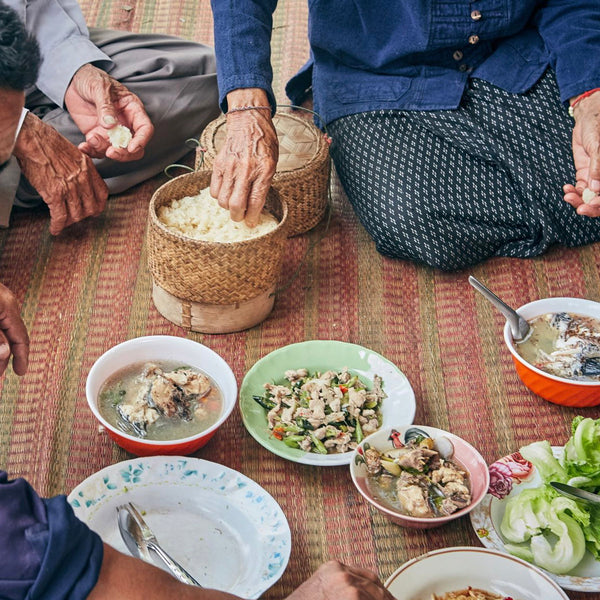
Thai meals generally include one spicy dish and fresh vegetable, one fried or grilled dish, one soup and, in Isan families, papaya salad at lunch.
Due to the increased income from their certified organic and fair-trade rice, chilis, shallots and herbs, the two younger daughters have the option to attend university. One of them would like to become a teacher of classic Thai performance. Furthermore, and very importantly, Amporn doesn’t have to leave his family anymore to do construction work in the city.
We also asked them about what they see as challenges to rice farming now and in the future. “The climate is the main challenge,” they said. “Rain and weather are impossible to control and, in the last couple of years, the weather has become unpredictable. We farmers do not know how to make it better and just have to live with it. Growing organic helps the soil to keep more moisture but we still need rain first. We hope to have enough water for the growing season and hope that there will be no rain or too much fog at the time of harvest. There are not many prospects for young women in the province but growing organic and fair-trade rice makes the prospects better for younger people to make a living as farmers.”
Resources
Thai New Year Songkran Festival
Amnatcharoen Organic Agricultural Community Enterprise Network



